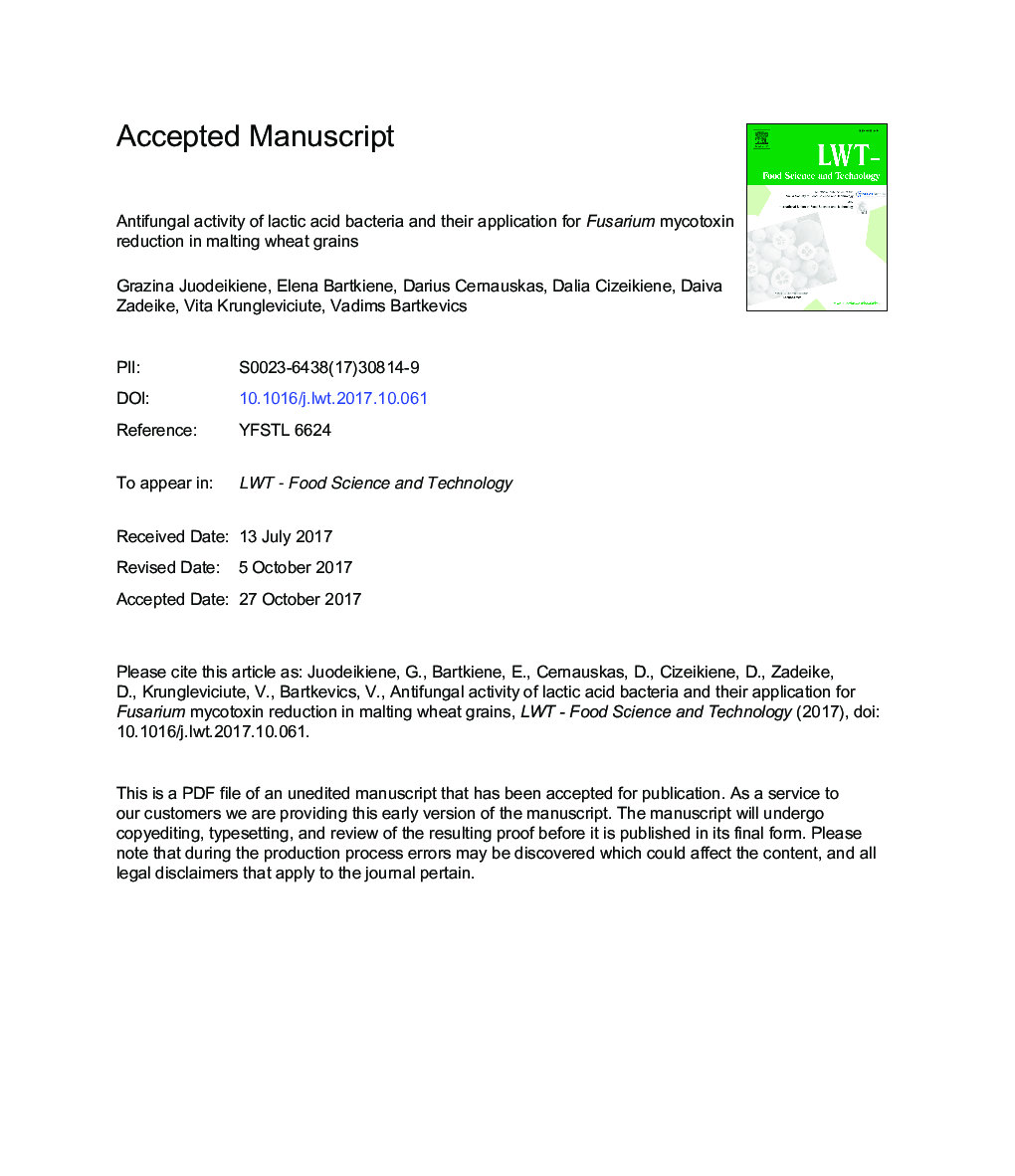| Article ID | Journal | Published Year | Pages | File Type |
|---|---|---|---|---|
| 8891939 | LWT - Food Science and Technology | 2018 | 36 Pages |
Abstract
This study mainly focuses on finding a strategy for reduction of Fusarium mycotoxin in malting wheat grains, predominantly used in the production of beverages and certain baked goods. The effect of treatment with lactic acid bacteria (LAB) on deoxynivalenol (DON), zearalenone (ZEN), T-2 and HT-2 toxins contained in malting wheat grains was studied. Additionally, the impact of bio-treatment with bio-products based on cheese whey permeate previously fermented with LAB on microbial contamination and germination capacity of grains was studied. Treatment with Lactobacillus sakei KTU05-6, Pediococcus acidilactici KTU05-7, and Pediococcus pentosaceus KTU05-8, KTU05-09, and KTU05-10 strains resulted in reduction of ZEN, DON, T-2 and HT-2 toxin concentrations in malting grains by 23, 34, 58 and 73% respectively. Moreover, the test of LAB strains revealed a broad spectrum of antimicrobial activity against fungi, especially Fusarium culmorum and Fusarium poae. Treatment of contaminated wheat grains with permeate previously fermented with P. acidilactici KTU05-7 and P. pentosaceus KTU05-10 strains resulted in increased germination of wheat grains by 9.5 and 7.9% respectively comparing with grains that were not pre-treated.
Keywords
Related Topics
Life Sciences
Agricultural and Biological Sciences
Food Science
Authors
Grazina Juodeikiene, Elena Bartkiene, Darius Cernauskas, Dalia Cizeikiene, Daiva Zadeike, Vita Lele, Vadims Bartkevics,
